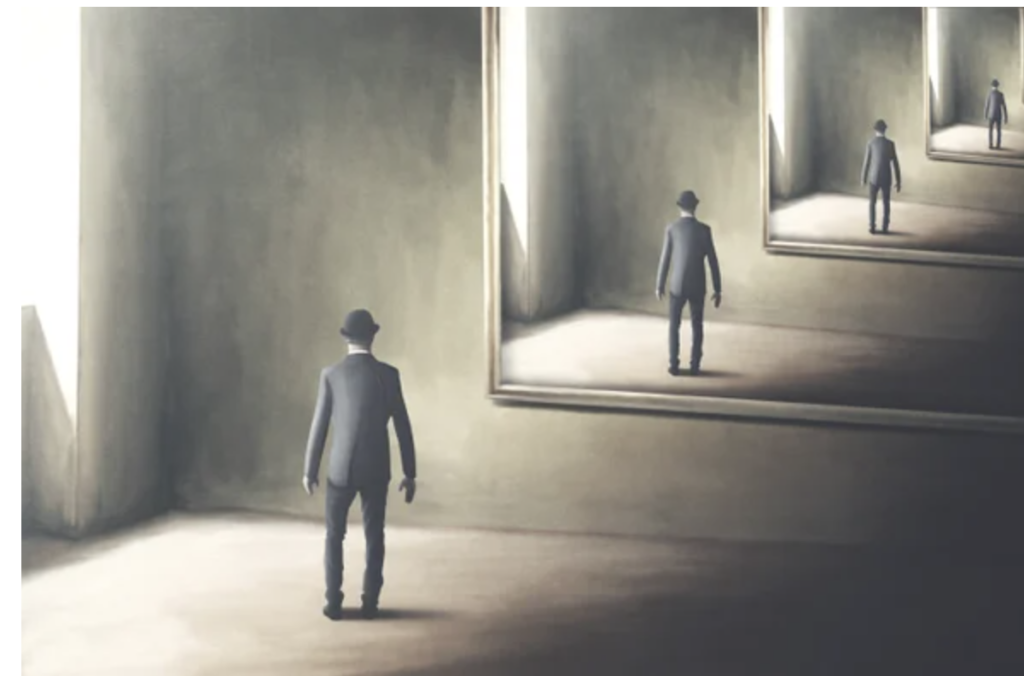Déjà Vu: The Brain’s Mysterious Illusion
We all know what déjà vu is, and no, we’re not talking about Olivia Rodrigo’s hit song. But what does it mean? A reported 97% of people have experienced déjà vu, but most don’t understand what it truly is. So, what psychological processes are involved in that odd, reminiscent feeling? Why does it happen? Why are our brains tricking us? Is it dangerous? Read to find out!
Technically, déjà vu is your brain creating an illusion. According to the Cleveland Clinic, déjà vu is caused by a dysfunctional connection between two parts of your brain. As explained by Dr. Khoury, a Neurologist and MD, déjà vu is a “subjectively inappropriate impression of familiarity of a present experience with an undefined past.” Basically, you feel you’re re-experiencing something you are almost sure you couldn’t. Scientists have traced this phenomenon back to recognition memory, composed of two aspects: recollection and familiarity. The hippocampus and prefrontal cortex control these aspects, respectively. The hippocampus controls long-term memory formation and spatial memory, allowing us to identify the position of objects regarding our bodies and concerning other objects. This contributes to the hippocampus’s ability to control recollection. Recollection allows us to remember and recognize things we have experienced before and to recall information (like on a test). Furthermore, the prefrontal cortex, specifically the lateral regions, including the anterior and dorsolateral prefrontal cortex, are responsible for familiarity. Familiarity memory occurs when a situation feels familiar, but a specific memory cannot be pinpointed.
When your brain confuses a familiar memory for that of a recollection, déjà vu occurs. This creates the emotional sensation of an inscrutable memory. Because your brain interprets said familiar memory as recollective, you feel you’re sure you’ve experienced the memory before. Still, the brain’s inability to locate the memory (seeing as there isn’t truly one) complicates things, making the memory seem hazy and almost like a dream. This produces the confusion of knowing there’s no way you could have experienced the memory in the first place.
Image source: PBS, https://m.youtube.com/watch?v=ut8mYGi0YRs
For the most part, déjà vu is an entirely normal and healthy reminder that our brain isn’t perfect and makes mistakes, just like us. In rare cases, déjà vu can indicate a neurological disorder. As a possible effect of temporal lobe seizures, many individuals with epilepsy report frequent feelings of déjà vu. Epilepsy often includes focal seizures that occur in the brain, and it’s possible to have said seizures in the frontal and temporal lobes, where the prefrontal cortex and hippocampus are stored, respectively. These seizures are generated by uncontrolled electrical activity that causes nerve cells to misfire in the brain. However, don’t worry if you just experience déjà vu occasionally. Focal seizures frequently have a slew of other signs, such as lack of muscle control, twitching, having sensations involved with all five senses, confusion regarding where you are, and frequent, sudden, unexplained emotions (so there is no need to call up your doctor and ask if you have epilepsy, simply because you’ve experienced déjà vu). If you do ever feel like you are about to have a seizure, it is important to notify someone immediately and contact a doctor if the issue persists.
Sources
- https://health.clevelandclinic.org/deja-vu-what-it-is-and-when-it-may-be-cause-for-concern/#:~:text=This%20is%20thought%20to%20happen,Khoury%20explains.
- https://www.psychologicalscience.org/news/releases/the-psychology-of-deja-vu.html
- https://pubmed.ncbi.nlm.nih.gov/15772360/#:~:text=In%20the%20prefrontal%20cortex%2C%20an,cortex%2C%20were%20related%20to%20familiarity.
- https://www.webmd.com/mental-health/what-is-deja-vu#:~:text=Most%20people%20experience%20d%C3%A9j%C3%A0%20vu,are%20called%20temporal%20lobe%20seizures.

